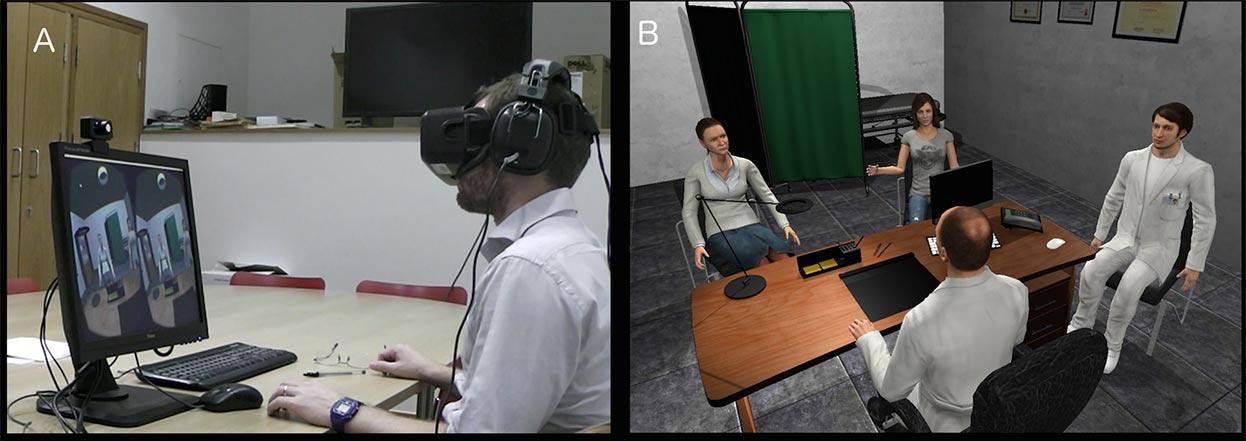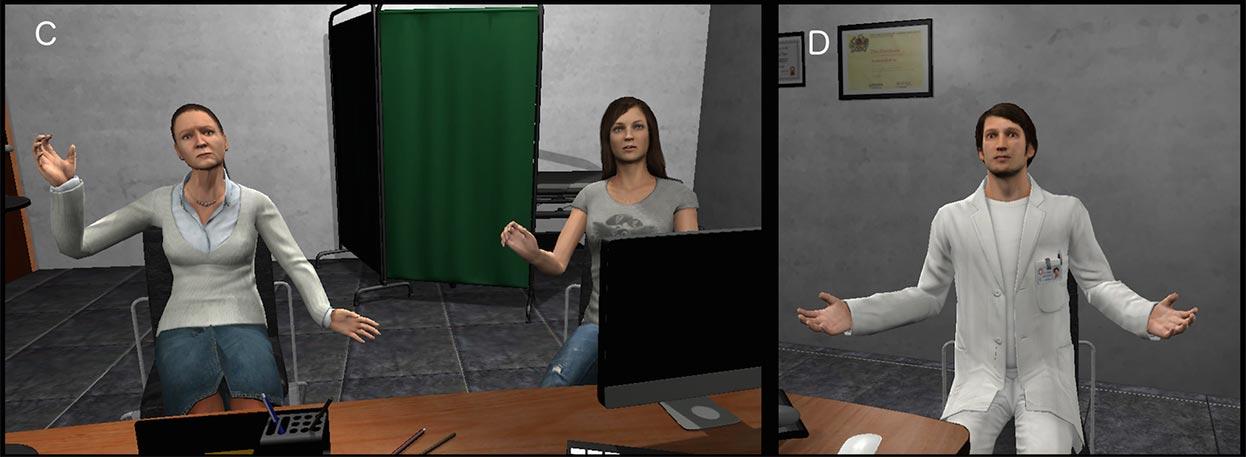Use virtual reality headsets to train GPs in handling angry patients, scientists suggest
Primary page content
An international team of researchers has been using virtual reality headset Oculus Rift to help understand how GPs respond to medical dilemmas. Goldsmiths, University of London’s Dr Sylvia Xueni Pan (Department of Computing) led the virtual reality work for the study.

A scenario places GPs into a virtual consulting room. A (virtual) mother and daughter enter and the mother - a woman in her 60s - complains of a sore throat and a small cough. The daughter explains that her mother had the same last year and the problem disappeared immediately on taking antibiotics.
All the medical signs indicate that this is a virus.
When the GP suggests some simple home remedies the daughter becomes increasingly angry, and accuses the doctor of not prescribing the antibiotics "because of NHS cuts", and "because old people are invisible and no one cares about them".

How does the GP respond? And is there a difference in response between more senior doctors and recent trainees?
It is well known that antibiotics are over-prescribed and that this contributes to the rise of antibiotic-resistant infections. Should the GP prescribe antibiotics to minimise stress and increase the patient’s likely satisfaction? Or refuse the prescription, even if this might jeopardise the long-term relationship with the patient, and live with the risk of potential complications?
The researchers, from Goldsmiths, UCL and the University of Barcelona found that of the nine trainees who participated in the study, eight prescribed the antibiotics, compared to seven out of 12 more senior GPs.
Participants also exhibited a degree of stress in the course of this confrontation - even though the characters and the situation were entirely virtual.
“The first time doctors will be faced with such a choice is when they are faced with it. No amount of textbook learning or advice from seniors can substitute for experience,” the researchers explain.
More than 25 years of research in virtual reality has shown that people tend to respond realistically to virtual events and situations.
The researchers add: “The results suggest that such virtual reality scenarios could be of significant use in the training of GPs, but also that similar situations arise in many professions.
“The idea that professionals can experience such dilemmas in virtual reality before ever confronting them in reality is much like pilots first train on simulators. It could lead to a profound change in professional education and training.”
The Responses of Medical General Practitioners to Unreasonable Patient Demand for Antibiotics - A study of medical ethics using immersive virtual reality was published in PLOS ONE.